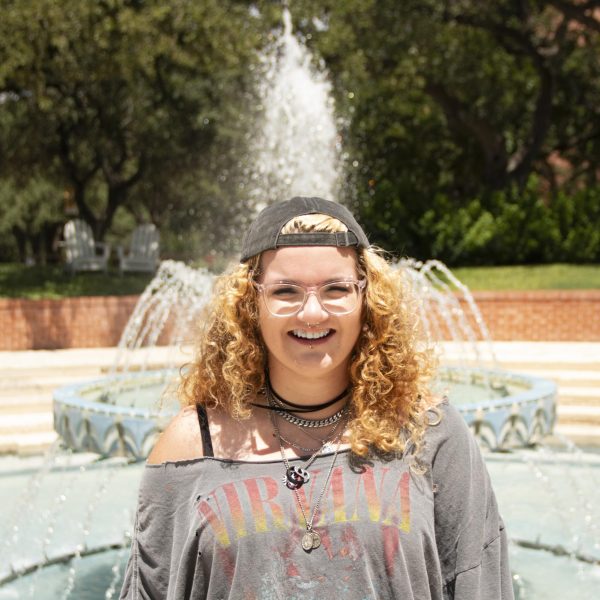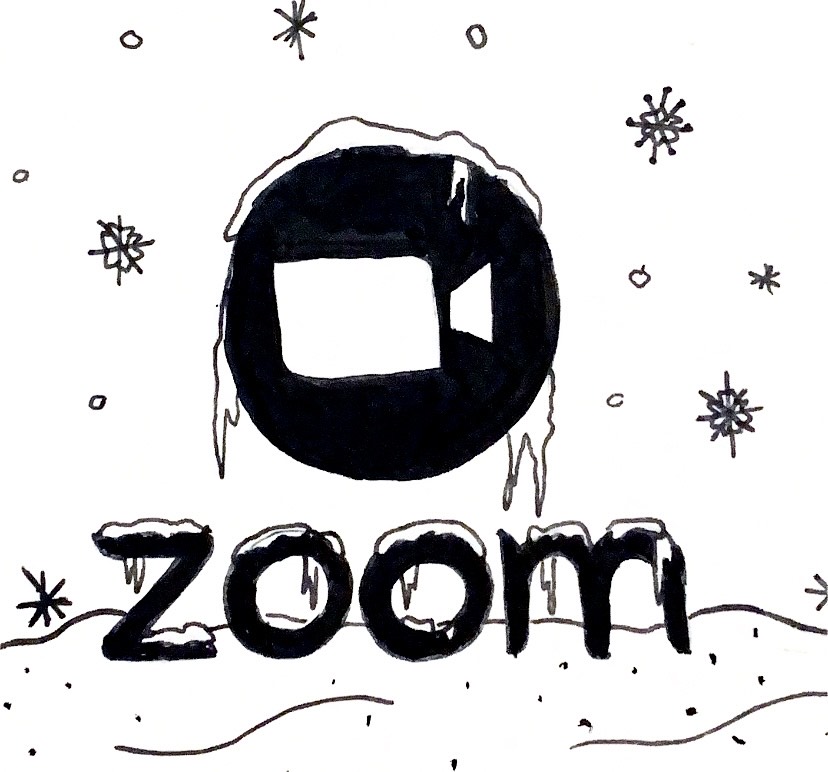Are snow days now a thing of the past?
In-person classes were canceled at the end of January, but classes were still in session online
On Jan. 30, Lorenzo Sanchez, Trinity emergency manager, emailed the entire student body to announce the cancellation of in-person classes due to winter weather. Zoom services were implemented to accommodate the inability for face-to-face learning.
These conditions were extended for another day, lasting until the mid-day of Feb. 1. Nevertheless, the conditions that may have once constituted a snow day were instead turned into another virtual school day.
“Out of an abundance of caution, the University will extend remote operations/virtual instruction,” Sanchez wrote in the email. “All campus operations will be conducted remotely in the morning, with only essential personnel onsite.”
Ever since the COVID-19 pandemic, education systems have become more and more open to utilizing virtual instruction platforms such as Zoom. As a result, the end of the pandemic led to new perspectives regarding online instruction. However, this shift in learning has not come without its own downsides.
Erin Nguyen, a sophomore international studies major, sees the positives and negatives that come with Zoom days as a student that had classes during the pandemic.
“I think COVID really messed up how everyone views Zoom, especially since we were on it for so long. Adding Zoom as a way to keep classes going could be beneficial because you do it to keep class and learning going. But also, I know for myself, my attention span on Zoom is very low, and I cannot pay attention that much. Just learning in general, I don’t think I absorb the information as much, so sometimes it does seem useless to have Zoom on snow days,” Nguyen said.
At the same time, snow days come in varying intensities. Anna Cortez, office manager at the Tiger Learning Commons (TLC), mentioned that in periods with heavier amounts of snow there can become more pressing matters to take into account, like loss of heat and electricity.
“We all remember when the power grid went out when we had that snowstorm two years ago. I’m pretty sure the professors were grateful that they didn’t have an actual Zoom day so that they could handle their home situation and things like that. It kind of just depends on the situation and how bad the weather is and how it affects everyone individually,” Cortez said.
Educators are then forced to respond to the decisions of administrations. Regardless of the circumstance, they are expected to do their jobs if virtual school is put on.
Theodore Locke is a visiting assistant professor in the philosophy department at Trinity. After working in Florida and Montreal, the Texas winter experience was a unique shift for him. Despite disliking his first classes on Zoom, he has been able to adjust to the new teaching situation. Nevertheless, he understands why some dislike the circumstances, and he even has some ideas for improvement.
“If you are a professor, maybe [do] not require asynchronous attendance on a snow day, but professors could still have a meeting for students that … want to participate, and then they could just post the lecture for other students to watch on their own time. This way you could still keep the content going,” Locke said. “Whatever it is that you do, … you don’t necessarily structure the meeting for that day in a way that requires students to be there so you kind of make the attendance optional but you still provide some content or some activity that students have to do at some point in the day.”
A consensus opinion on the state of Zoom and snow days has yet to be attained. Although the winter weather may be waning for this year, the topic will continue to be a conversation for years to come.
“I think it would be better to just have a snow day and just give everyone a day off, especially at this school where people study constantly … It is nice to have a break just to relax,” Nguyen said.

My name is Joshua Mitra and I'm a sophomore planning to double major in political science and communications. I'm from Boise, Idaho and use he/him pronouns....

Whattup! My name is Skylar Savarin (she/her/hers), and I am the Visual section editor! I am a third-year double majoring in Human Communication and Art....






